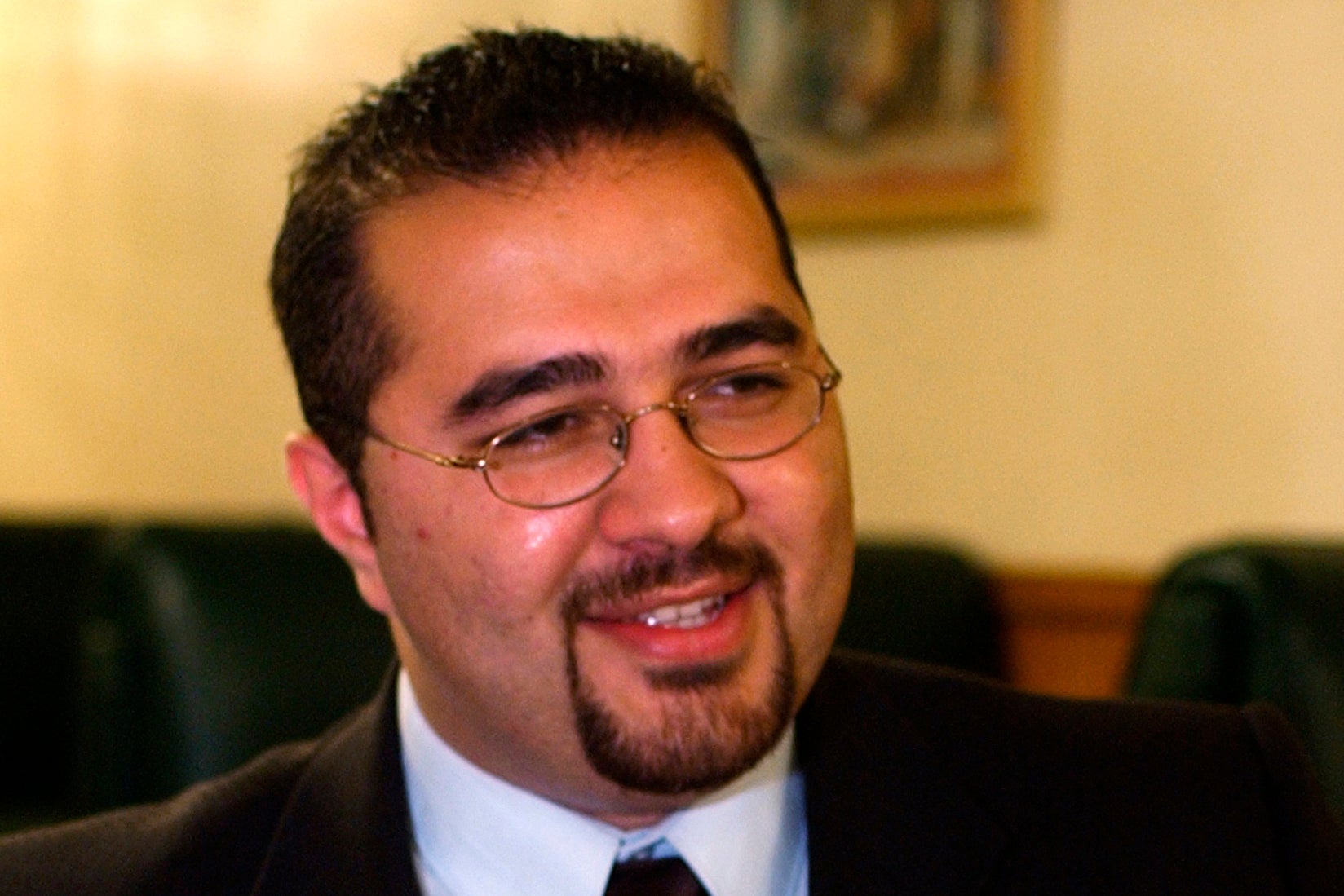Lawsuit by Islamic rights group says US terror watchlist woes continue even after names are removed
A lawsuit filed by an Islamic civil rights group challenges the constitutionality of the government's terror watchlist and says Muslims face negative repercussions even after they are able to clear their name off the list

Mohamed Khairullah, the longest serving Muslim mayor in the U.S., thought he had finally resolved years of airport searches and border interrogations in 2021, when his name appeared to be removed from the government's secret terror watchlist.
Then, earlier this year, the discriminatory treatment renewed when Khairullah, the mayor of Prospect Park, New Jersey, found himself uninvited from a White House celebration of the Eid al-Fatr holiday marking the end of the Muslim holy month of Ramadan, without explanation.
A lawsuit filed Monday by an Islamic civil rights group on behalf of Khairullah and other plaintiffs says his exclusion from the White House event demonstrates that Muslims face negative repercussions even after they are able to clear their name from the list.
The Secret Service declined to comment on the lawsuit. “As we stated in the past, we were not able to grant entry to the Mayor at the White House and we regret any inconvenience that may have caused,” the agency said in an emailed statement.
At a press conference in Newark, New Jersey, on Monday, Khairullah said his problems began in 2019, after he returned to his native Syria to document atrocities committed by the regime of Bashar Assad as Assad was engaged in a civil war to stay in power.
He said his apparent placement on the U.S. government's watchlist has rendered him a second-class citizen in his adopted country, and that his apparent removal from the list has failed to fully restore his rights.
“If I don't do something now, my children and their children will probably be second-class citizens based on their ethnic and religious background,” he said.
The lawsuit, filed in federal court in Boston, is a broad challenge to the watchlist's constitutionality, and one of several that the Council on American-Islamic Relations has filed over the watchlist's 20 years of existence. CAIR's lawsuits contend that in nearly every instance, the government places names on the list without valid reason, and that Muslims who are on the list face scrutiny only because of anti-Muslim discrimination.
The watchlist has only continued to grow. And much of what is known about the list has come from answers CAIR has received from the government as it defends its practices.
The list is now estimated to include 1.5 million people, the overwhelming majority of whom are Muslim, said CAIR attorneys Hannah Mullen and Justin Sadowsky, who helped prepare Monday's lawsuit.
The FBI's Terrorist Screening Center plays a primary role in the watchlist, though many government agencies are involved in the secretive process.
The watchlist also is used by a number of government agencies. A subset of the database includes the no-fly list that bans people from U.S. flights. A larger subset of the list allows people to fly, but only under enhanced screening.
CAIR contends that its lawsuits have uncovered the breadth of government agencies that use the list, from local law enforcement to the State Department to the Secret Service. In response to one CAIR lawsuit, the government acknowledged that the list is shared with hundreds of private entities that are deemed “law-enforcement adjacent.”
In another lawsuit, CAIR asked how the government handles removals from the watchlist on the rare occasions that removals occur, either because people appeal their status or the government makes a change on its own. The response was discouraging, according to CAIR.
“The mere fact that they had been placed on the watchlist in the past is retained by the government in several different databases ... and can continue to harm them,” Mullen said.
While Mullen said there is documentary evidence from past lawsuits that people's names are retained in databases even after their name was supposed to be removed, anecdotal stories like Khairullah's are based more on circumstantial evidence. That's because in most cases, the government refuses to tell people if they've been placed on the list or if they've been removed.
Khairullah said his travel difficulties appeared to be resolved in 2021 after a land crossing from Canada into the U.S., when he was detained for hours and was eventually told by a supervisor that “we think we fixed your problem.”
Khairullah said he was then able to fly without hassle and thought his problems were over — until the Secret Service refused to allow him to come to the White House.
Bookmark popover
Removed from bookmarks